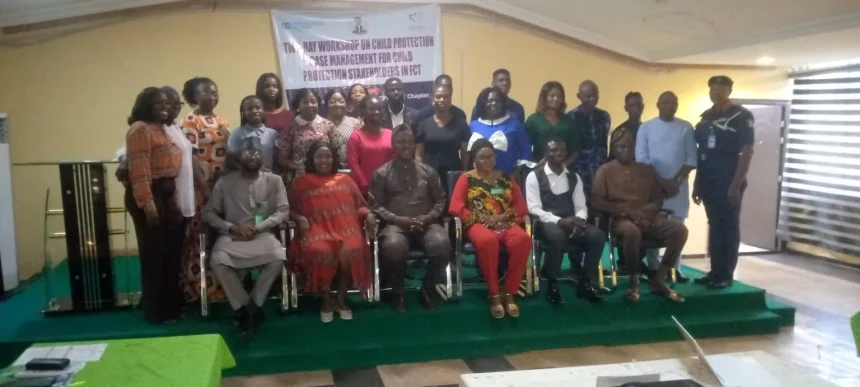The Federal Capital Territory Administration (FCTA) has declared that the removal of child beggars from the streets of Abuja will be a continuous and sustained exercise. this official commitment was announced by Dr. Idris Yahaya, director of child development at the FCTA Women Affairs Secretariat.
Yahaya made the statement during a two-day training session focused on child protection case management, organized for child protection actors in the FCT. the training was a collaboration with the Child Protection Network (CPN), FCT Chapter, aimed at building the capacity of stakeholders to handle child protection cases effectively.
The director revealed that a dedicated committee under the FCTA’s social and welfare department has been established to systematically follow up on all children removed from the streets, ensuring a comprehensive and protective approach to the issue.
“The committee routinely moves around the streets of Abuja to ensure that children are not being exploited for alms begging.
“Some of these beggars pretend to be blind or physically disabled. Once caught, they are taken to rehabilitation centres,” he said.
He explained that after rehabilitation, many of the individuals are relocated to their states of origin.
“FCT is seen as a land that belongs to everyone. So, people troop in daily from neighbouring states pretending to be deformed in one way or the other,” Yahaya said.
He also cautioned residents against child labour, noting that the administration was closely monitoring violations.
“Parents must take issues concerning their children seriously. Child protection should be a priority, as children fall into the category of vulnerable persons,” he said.
“Why are they called vulnerable? Because they can’t protect themselves, they can’t decide for themselves, and they certainly can’t provide for themselves”.
Yahaya called for a review of the 2003 Child Rights Act (CRA), stating that some sections of the law are no longer realistic in addressing present-day child protection challenges.
Earlier, Mr Gbenga Adeleke, FCT National Coordinator, said the organisation is committed to protecting children and ensuring they grow up in safe environments, whether at home, in school, or in the community.
Adeleke said the training aimed to raise awareness that every child is the responsibility of someone,be it a parent, guardian, teacher, or community member.
“With our work, we discovered that many people who should protect children don’t even know how to do it.
“About 68 per cent of FCT residents are unaware of the Child Rights Act that safeguards children. And when cases of abuse are reported, some of the first responders lack the capacity and knowledge to handle them appropriately.”
He stressed the need for a collective approach to child protection.
“At every point in time, someone must be accountable for the safety of a child. The Nigerian Constitution provides for fundamental human rights, but it lacks specific guidelines on how to protect children who are vulnerable.”
Adeleke said this gap underscores the importance of convening stakeholders to build a more coordinated and knowledgeable response system for child protection in the country.



